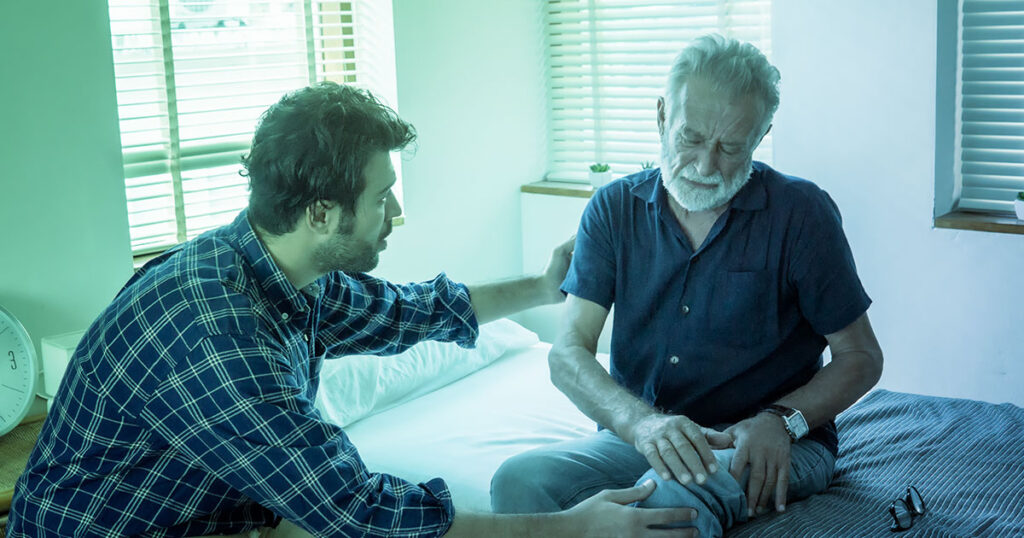
Caring for your loved one with Dementia or Alzheimer’s can be emotional, stressful journey. Since there is no cure for this disease it is often your support and love make the big difference.
The three stages of Dementia
1. Mild stage (Early)
In the early stage your loved one may not need much care.
Help them to accept the diagnosis, plan future, stay as active, healthy and engage as much as possible.
Deal with conflicting situations People may have the difficulty remembering words and names, also experiencing sadness, anxiety, anger, fear, frustration and loss of interest in activities. Let them express what they are feeling, encourage them to be active and keep on pursuing forward.
Help them with short term memory loss, reminders to help remember appointments, words and names, keep track of medications, manage bills and money. Try to work together as much as you can.
Use available resources to help you and provide effective care, advice and practical support.
2. Moderate stage (Middle)
In the moderate stage physical function, sensory processing are affected. This can cause problems with personal hygiene also in appropriate words, wandering and judgement. Some home modifications may include like lock system and safety latches need to be made. As the disease progress they will require more and more care, they will gradually experience memory loss, failure to recognize friends and family, disturbing mood and behaviour changes also seen. Providing more assistance with daily activities and coping with new challenge
Ask for help -reach out to other family, friends and organization with help and support.
Join a support group- you will be able to learn from others who had faced similar challenges.
3. Severe stage (Final)
In the Severe stage they may require 24 hours care. Unable to walk, difficulty to handle their own personal needs eating food, having bath, dressing up. Extensive memory loss, limited mobility, difficult to recognize family members and friends.
Develop helpful daily routine
- Involve your loved one in daily activities as much as they can
- Activities to stimulate different senses
- Find group activities
- Spend time outdoor
- Plan visitors and social events
Tips to improve Brain Health
- Exercising
- Eating and sleeping
- Managing stress
- Stay mentally and socially active
- Healthy Lifestyle
Tips for the family members to take care of dementia patients at home
Dementia is a progressive loss of mental function, over a time it will lead to physical decline, personality and behaviour changes. If you are caring for your dear ones who is diagnosed with Dementia or Alzheimer’s, your role in managing daily task will increase as the disease progresses. Few tips that can help the patient and manage the task effectively
- Talk to the person
- Help in the daily activities
- Manage with behaviour patterns
- Help with memory loss
- Encourage activities stimulates mind and body
- Help them to relax
- Take regular walks
- Listening music makes them clam
- Keep familiar objects around like family photo
- Keep reminders and check list
- To avoid confusion keep lights on at night
- Talk about current events
Reduce Frustration
Person with Dementia becomes upset and nervous very fast, doing one simple task make it difficult for them .Tips to help in such cases
- Reduce distractions- during conversation, meal time make them focus from other distractions
- Provide choices- for a walk or a movie, cold or hot preferences, outfits choices
- Schedule Daily routine wisely-Monitor daily activities, allow some flexibility for certain task
- Involve the person- Make them do as much as simple task without assistance
- Limit napping –This can get night sleep reversed
- Be flexible- to reduce frustration be flexible
- Prevent fall-Any clutter that could cause fall so to be avoided
- Bathroom safety-measures to be taken to improve bathroom safety
- Check Locks and safety-Install locks, safety and security system
- Patience, Tolerance, Compassion, Flexibility along with self-care and support from family and friends helps to meet the challenges.
